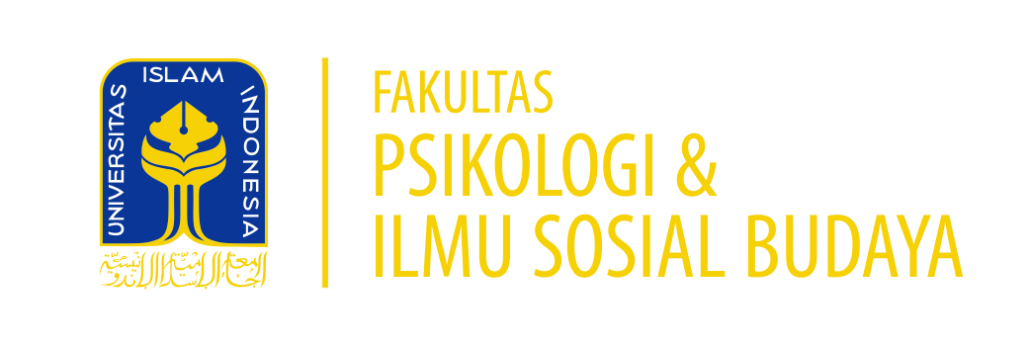Educational Leadership in Islamic Perspective: A Personal Reflection
Oleh: Rizki Farani, S.Pd., M.Pd—-
Education field present domains which hold a wide variety of competency. The role of educators is not only implementing teaching and learning but also developing regulation and policy to support educational programs. Considering the scope of educators’ role, it is essential for educators today to foster their leadership skills in order to formulate solutions for educational problems. Northouse (2016) defines leadership as “a process whereby an individual influences a group of individuals to achieve a common goal”. In this definition, there are four key points of leadership: (a) leadership is a process, (b) leadership involves influence, (c) leadership occurs in groups, and (d) leadership involves common goals (Northouse, 2016). Those points imply that being a leader require us to work together in a group to achieve goals. It needs commitment to maintain motivation to work within the process of life.
In Islamic perspective, leadership is a part of religious practices. It becomes a foundation of social behaviour and leadership actions. Thus, Islamic leadership is considered as an important movement to transform educational system (Dakir & Fauzi, 2020). In addition to it, Al Qur’an emphasises the importance of leadership in Islam, for instance: surah Al-Baqarah verse 30:
And [mention, O Muhammad], when your Lord said to the angels, ‘Indeed, I will make upon the earth a successive authority.’ (https://tafsirq.com/)
Another surah in Al Qur’an mention leadership in Surah an-Nur verse 55:
Allah has promised those who have believed among you and done righteous deeds that He will surely grant them succession [to authority] upon the earth just as He granted it to those before them (https://tafsirq.com/)
Based on the surah, it is highlighted that Muslims in earth are actually born to be leaders. There is a leadership quality within our soul. It means a process of becoming a true leader in education starts from ourselves. However, a journey of finding leadership quality is a complex process because leadership quality relates to self-identity. To start exploring our leadership quality, it is essential to conduct prior evaluation toward our self-identity. Basic important questions for ourselves are “who are we?”, “what do we want to be?” and “how do we achieve our goals?”. It is expected that we unlock our hidden interest and self-potential elements.
Revealing our natural competence helps us to identify our strength and weakness. To continue our journey to find leadership quality, we can maximize our strength to compensate our weakness, for example: a school who has limited access of materials and media need collaborative networking to provide sufficient learning facilities. In this case, it is necessary for the school principals to propose collaboration with government or private organization to improve school facilities. The role of leader in this effort is to conduct need analysis, preparation, implementation and program evaluation.
In making decision for educational leadership, a leader should consider the institution profile. Each organization has different resources. Some educational institutions already have established system and human resource to run educational programs. Meanwhile others may not have the same environment. To anticipate misdiagnosed decision, a leader should understand the basic characteristics of the instruction, for example: vision, mission, organization objective, human resource and financial strength.
Based on this description, leadership quality is not always a natural process. Some people may be born as a leader even without any leadership training. Meanwhile, some others may not find their passion in leadership until achieving reflection process. Therefore, each person has a unique way in finding themselves. We cannot rely on an instant process. Leadership quality is something that we build gradually based on experiences.
A leader can not solve all educational problems without a solid team. Unfortunately, working together in a team is not as smooth as it is expected. Effective teamwork depends on willingness from leaders and members to learn together. Sometimes, personal ego hinders decision making in a group. In fact, Al Quran has given many reminders on the importance of becoming a humble person. Surah Al Isra’ verse 37 says:
وَلَا تَمْشِ فِي الْأَرْضِ مَرَحًا ۖ إِنَّكَ لَنْ تَخْرِقَ الْأَرْضَ وَلَنْ تَبْلُغَ
الْجِبَالَ طُولًا
And do not walk upon the earth exultantly. Indeed, you will never tear the earth [apart], and you will never reach the mountains in height (https://tafsirq.com/)
Surah Luqman verse 18 also says that:
وَلَا تُصَعِّرْ خَدَّكَ لِلنَّاسِ وَلَا تَمْشِ فِي الْأَرْضِ مَرَحًا ۖ إِنَّ اللَّهَ لَا
يُحِبُّ كُلَّ مُخْتَالٍ فَخُورٍ
And do not turn your cheek [in contempt] toward people and do not walk through the earth exultantly. Indeed, Allah does not like everyone self-deluded and boastful (https://tafsirq.com/)
From this surah, we learn that effective interaction among human is not something that we can directly get from a group recognition. We should earn it based on trust, commitment and generosity. Philosophically speaking, every human is born differently. They bring specific character that differ them from another person (Jalaluddin & Idi, 2019). The diversity of human character is one of factors that trigger misunderstanding or miscommunication. To reduce friction among people, a leader who has legitimate power can create integrative system in terms of facilitating all strategical plans. Charney (2006) suggests some tips for teamwork, for instance:
- 1. Select problems based on priority scale. Some problems need urgent decision, proposed by the leader to fasten a process. On the other side, there are also some problems that needs group agreement.
- 2. Create a clear goals and objective for every program. A leader should share program indicator to the members. Moreover, it is also important to understand that not every indicator is doable due to regulation or policy limitations. Do not push group members to achieve a target that is not supported by system.
From the tips, we can infer that clear and sustain communication are two important keys to bring the group together. A leader cannot assume that all members can finish all program immediately. A routine monitoring is essential to maintain coordination. As we reflect leadership quality, it can be concluded that leadership is not considered as one separated domain from education. Leadership in education is a part of a system because building a good educational system is one of leaders’ roles. Education needs leaders to empower programs and activities. Thus, educators all around the world should prepare themselves to be leaders someday. They need to see themselves as agents of change in community, not only a person who delivers lesson in the classrooms. Teachers need to broaden their view on how to see social phenomenon in order to select the best solution for educational problems. We hope Allah SWT always guide our way to find our unique leadership quality.
Reference
Charney, CY. 2006. The Leaders’ Tool Kit: Hundreds Tips and Technique for Developing the Skills You Need. New York: American Management Association
Dakir & Fauzi, A. 2020. Qur’anic-Based Educational Leadership: An Inquiry into Surah Al-Fatihah. Nadwa: Jurnal Pendidikan Islam (Islamic Education Journal). Vol. 14, No. 2, Desember 2020. DOI: 10.21580/nw.2020.14.2.6203
Jalaludin & Idi, A. 2019. Filsafat Pendidkan: Manusia, Filsafat dan Pendidikan. Eight Edition. Depok: PT RajaGrafindo Persada
Northouse, P. G. 2016. Leadership: Theory and Practice. Seventh Edition. Thousand Oak, California. Sage Publication, Inc






